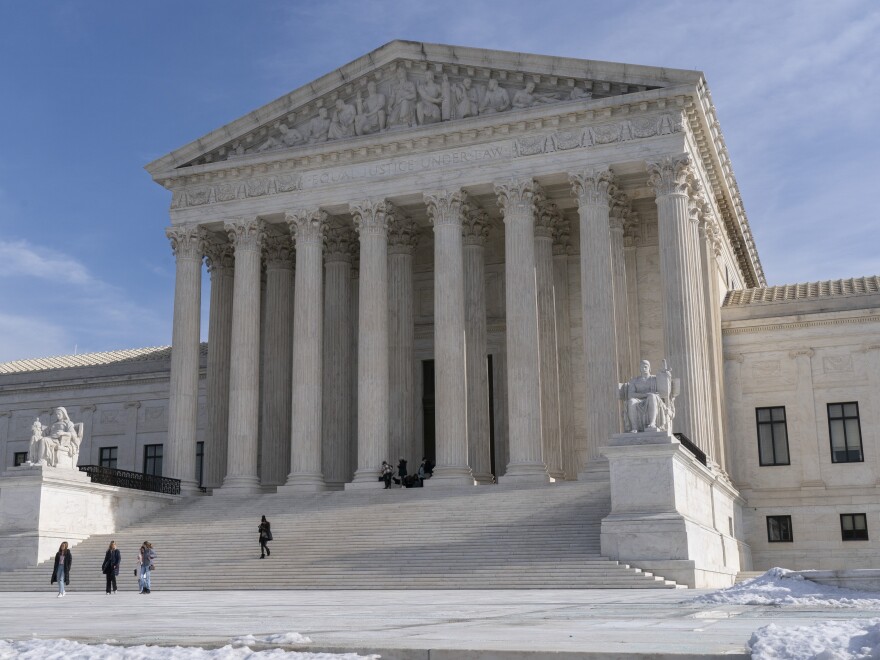On today’s episode of The Confluence:
A former U.S. Supreme Court clerk reflects on the impact of a leaked draft opinion
(0:00 - 6:40)
Last week, Politico published a draft opinion that was leaked from the U.S. Supreme Court, suggesting that the highest court in the land could be poised to overturn the landmark Roe v. Wade decision.
Chief Justice John Roberts confirmed the authenticity of the draft, and has ordered an investigation. The leak shocked the many former clerks who worked under the justices, including Amy Wildermuth, dean of the University of Pittsburgh Law School and former clerk for then-Justice John Paul Stevens.
“I was heartbroken,” says Wildermuth of the leak. “The court, you know, has integrity only because it has been a very careful place and it has been so careful that you very rarely have a leak of this sort. It was devastating to that integrity.”
Wildermuth says draft opinions are just that: drafts, meaning they can be changed. However, her belief is that the court should decide not to issue an opinion on this case.
“When you have something of this sort happen with a case, you have to say, ‘We are going to do what due process requires of us,’ which is to rehear it. Now, it may not ultimately change the outcome,” says Wildermuth. “ I think that makes a difference in the eye of the public, that we aren't going to rush to judgment. And when we have a flaw of this sort, we take care of it, we remedy it. We take care of the stench that's created by a leak of this sort.”
The disparity between students of color and teachers of color in Pennsylvania schools is widening
(6:45 - 17:29)
A report published last month finds that teachers of color are underrepresented in Pennsylvania schools. The issue is acute in Allegheny County: earlier research by Philadelphia nonprofit Research for Action found Pittsburgh is experiencing a steady loss of Black teachers.
“Across Pennsylvania, we have around 36.5% students of color, but we only have 6.2% teachers of color. This is one of the largest disparities in the country,” says David Lapp, Director of Policy Research for Research for Action.
“This is not new information to us. For many, many years, people have been touting the impact of historical and institutional racism on education,” says Gretchen Generett, dean of Duquesne University’s School of Education. “What we know is that if you don't see yourself in roles, it's hard to imagine yourself in those roles… We also know that relationships matter and education, and so does the feeling of belonging. So, when students go through schools and they don't see themselves or they don't have very close relationships with teachers that are nurturing or they don't feel as if they don't as if they belong, then they don't want to stay in school as a profession.”
Generett says Duquesne actively recruits students of color to be future teachers, and says they cite the work from Research for Action that shows the positive impacts teachers of color have to encourage students to stay in the profession.
Libraries in poor communities are getting less funding than their wealthier counterparts
(17:34 - 22:30)
In Allegheny County, there are wide disparities between libraries in the wealthiest communities and the poorest. In a joint reporting project with PublicSource, 90.5 WESA’s Kate Giammarise says the current funding system fails to even the playing field, though some are pushing for more equity.
The Confluence, where the news comes together, is 90.5 WESA’s daily news program. Tune in Monday to Thursday at 9 a.m. and 7:30 p.m. to hear newsmakers and innovators take an in-depth look at stories important to the Pittsburgh region. Find more episodes of The Confluence here or wherever you get your podcasts.





